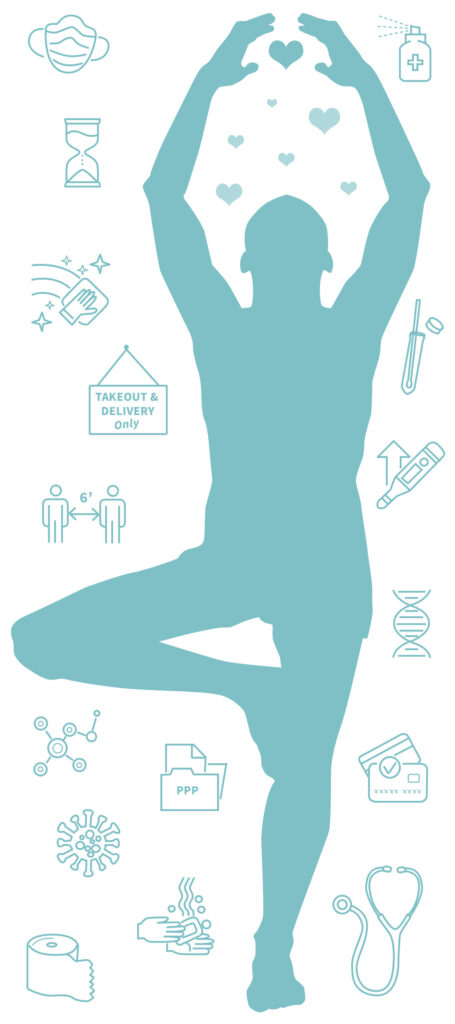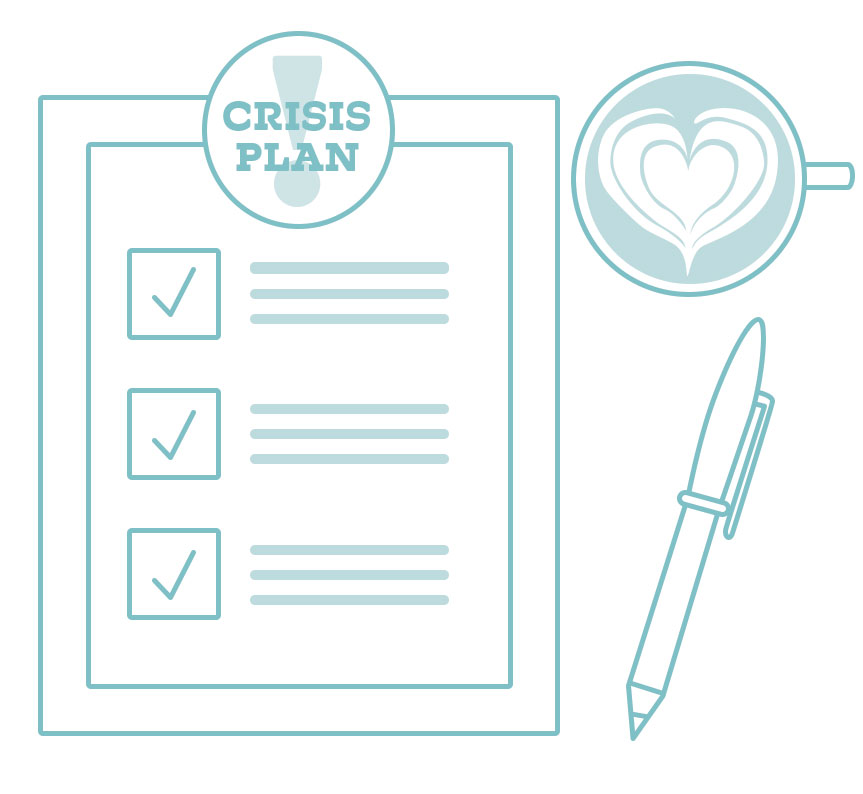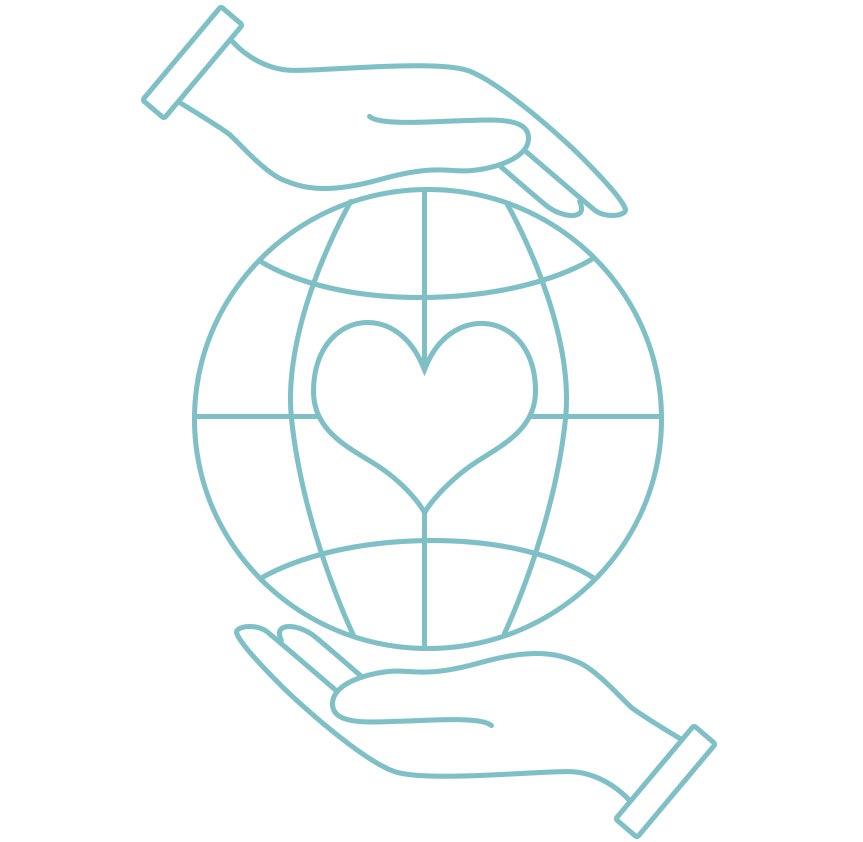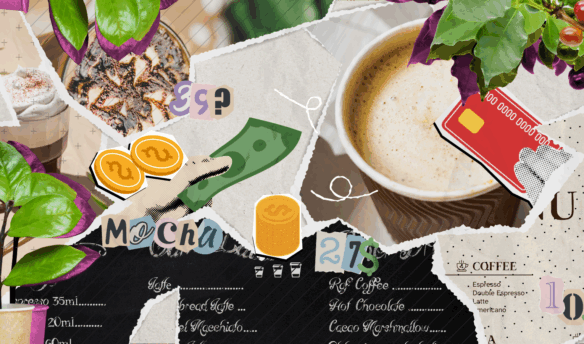In so many ways, the pandemic and the succeeding panic caused by COVID-19 are unprecedented.
We have seen the rise of social distancing and the closing of businesses—some for good. Furthermore, as always, crisis does not rest on all shoulders equally; those who were already disenfranchised and marginalized have been hit hardest. Whether we find ourselves one of the lucky few or part of the aching masses, the coronavirus has affected all our daily lives, potentially forever.
The current reality notwithstanding, there is hope amid the suffering. Not to diminish the hardship being experienced by so many, crisis is nothing new to the human race. As Audre Lorde said, “We are powerful because we have survived.” Whether we think back to the Spanish flu pandemic or to the more recent 2008 recession, we have weathered more than a few storms.
Time and again we hear tales of people who have leveraged crisis to learn and grow, of inspiring individuals who realized that how they handled hard times would define them forever. From those stories, five patterns emerge for how to survive, and even thrive, amid rough seas that are as timeless as they are timely. These patterns are general in nature, the hope being to help and encourage as many people as possible regardless of specific situation or social standing. We desperately need voices of hope in this season and hope, said Harvey Milk, will never be silent.
1. Manage Your Mindset
Easier said than done, many people consider the thoughts that pass through their head and the emotions they experience to be completely outside their control. This idea of managing your mindset can seem unrealistic, impossible, and even inauthentic. Here is the rub: decades of research have proven what philosophy has been teaching for thousands of years—we have a choice in the matter. According to eminent trauma-informed therapist and author Dr. Faith G. Harper, on a neurobiological level, emotions only last for 90 seconds. That is how long it takes for the cortisol and adrenaline to dissipate from our system so we can move on with our lives.

Why, then, is our daily experience so far out of alignment with our brain physiology? Because we continue to fuel our emotions with our thoughts. Neuroscientists call this perseverating or, more affectionately, “sticky brain.” We replay the incident, remind ourselves of the anxiety-inducing news reel, and meditate on the madness around us without ever pausing to realize we have a choice in the matter. When we follow this path, wave after wave of chemicals secreted by our brains cascade through our bodies until we are completely exhausted, physically, mentally, and emotionally.
Tactic #1: Change Your State
Changing your state is a simple practice that will help in learning to choose your mindset at any given time. If you are inside, go out. If you are standing, have a seat. If you have been sitting, go for a walk. Take a deep breath (or five) and feel the reset.
Exploring a meditation practice can also pay significant dividends. Over 30 years of extensive research has shown the effectiveness of mindfulness and meditation in improving overall health. For a primer, check out Dan Harris’ book 10% Happier and the Headspace app for your phone. [Take advantage of Headspace’s free subscription for unemployed workers during COVID-19 at headspace.com/unemployed.]
2. Manage Your Media
Nearly 100 years ago, British author Patricia Wentworth wrote, “Too much information can be as disconcerting as too little.”

We live in a day where so much content is being created, it fries our brain circuitry when we try to plug into it indiscriminately. Former CEO of Google Eric Schmidt observed that we create as much content every two days as we did from the dawn of civilization up to 2003. This “always connected” culture leads to what researcher Linda Stone famously called “continuous partial attention”—we are losing the ability to concentrate long enough to think critically about the information to which we are being exposed.
To make matters worse, checking your phone or turning on the news first thing in the morning, when your brain waves are still in alpha state and therefore at their most sensitive and malleable, allows whatever we see or hear to mold our brain patterns for the rest of the day. During a time of crisis, the ability to selectively intake media becomes even more crucial. With media pundits promulgating half-baked theories, we need to preserve our ability to think critically and connect the dots for ourselves.
Tactic #2: Find Balance
Complete ignorance of what is happening in the world is not helpful or healthy. However, our world is so interconnected that putting our proverbial head in the sand is not even possible anymore. Researchers suggest limiting media intake to specific times and from intentionally chosen sources. These sources should be chosen for their balance and content quality, not because they match your personal bias. People who have instituted intentional practices consistently report that they feel like they have more mental space to process the information they hear and read.
3. Focus Your Energy

Every event, action, and crisis falls into one of two categories: things we can influence and things we cannot control. We can decide to turn off the news once we have gleaned the pertinent information, but we cannot control what the media produces. We can control our response, but not the reaction of others. We can influence our attitude while shopping at the store, but we cannot magically make toilet paper appear at our local market.
It is natural to be concerned about things that affect us but have no direct influence over. This paradigm is powerful because it gives us a choice when it comes to where we spend our time and energy. Will we burn our reserves worrying about things over which we have no control? Or will we choose to direct our focus at things that are within our circle of influence?
Tactic #3: Differentiate & Act
The simple process of placing each event into either the “can control” or “cannot control” category activates our prefrontal cortex, the part of the brain associated with executive function, emotional regulation, and creative problem-solving. When we challenge ourselves to only spend our time and energy on what we can actually influence, we may just find we do not have the time or energy to worry about things we cannot control.
4. Plan Proactively
Although many of us are familiar with the timeless adages about planning, not everyone thinks through what they might do in the case of a crisis beforehand. When the COVID-19 curve started to trend upward at an alarming rate, it became clear that many governments, businesses, and individuals had no plan for how they would weather a storm. It goes without saying that none could have predicted the coronavirus outbreak. However, if history has taught us anything, it is that hard times will come, and we should be prepared for them. Thousands of businesses had no plan for any interruption in their cash flow; an economic downturn of any type would put them out of business. Unfortunately, the same is true for individuals. Research also shows that millions of people in the United States do not have an emergency plan in any form and do not have enough money saved to survive a crisis of any kind. Being able to save money and have a dedicated fund set aside is a privilege not available to all people. However, thinking through potential options for a future emergency that is certain to materialize is free to all.
Tactic #4: Create a Crisis Plan

Few things are certain in life; that there will be hardship is one of them. Taking time to create a crisis plan, even if it is imperfect, is time well spent. Just having a plan, any plan, is better than nothing. No amount of hustle or hard work can ever make up for the time that planning saves you. Additionally, it is much easier to manage your mindset when the next crisis comes—and it will—if you have a plan in place for your business.
5. Help One Another
In times of upheaval, especially when the culprit is a global pandemic, it is easier than ever to experience a sense of helplessness. But it is important to channel that helplessness into helping other people. There will always be someone hit harder than us.
Since the pandemic hit, stories have abounded of people helping one another. From organizing and raising money to help feed the hungry to creating virtual tip jars to support hospitality industry workers during unemployment, creative solutions continue to inspire us.

Remember that many people may be experiencing an even deeper level of pain and uncertainty than you. If you find yourself in a position of influence, use that to effect positive change and help people who may have been hit harder by this pandemic. For example, if you’re a coffee buyer, try to look for ways to create stability for producers you purchase from, such as cash advances and pre-shipment contracts.
If you feel powerless, remember you are not. Tumultuous times will always find us; how we meet them will always define us. Once we have weathered this particular storm, and we will, we will be stronger. In times like these, it is important to manage your mindset and media, focus your energy, plan proactively, and help each other in order to change the world for the better.














